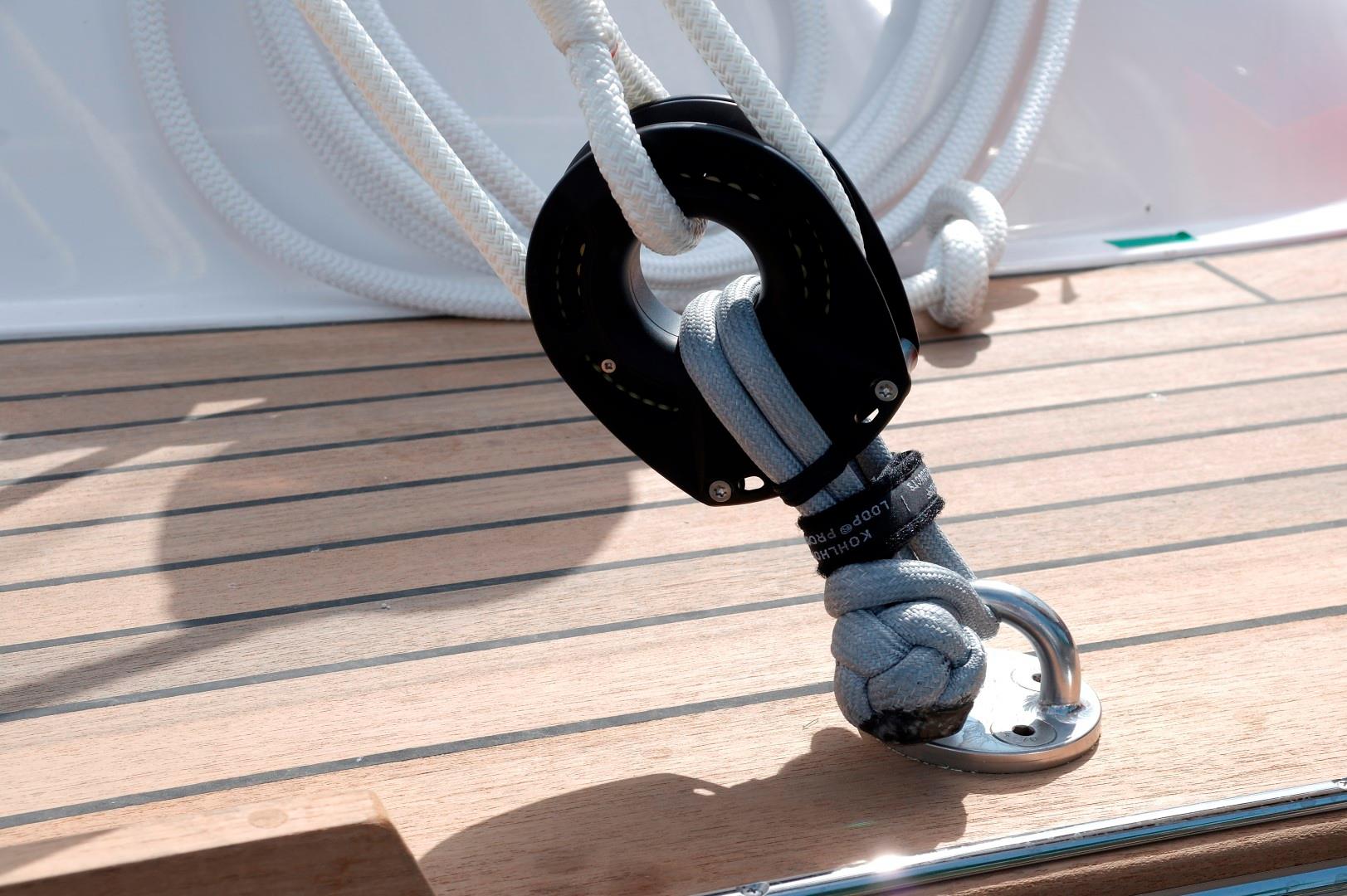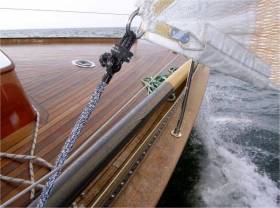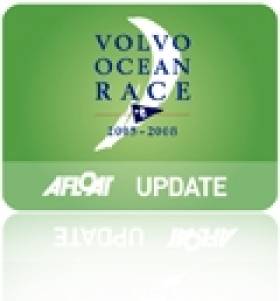Displaying items by tag: rigging
Sailing Hardware & Rigging Online From Upffront.com
The speed and simplicity of purchasing online and dramatic improvements in the efficiency of the logistics industry are changing traditional purchasing practices. One such company at the forefront fo this change is Upffront.com, a comprehensive online purchasing platform for performance sailing hardware and rigging systems; orders are processed 24 hours a day, 365 days a year and the firm delivers to customers located anywhere in the world.
The aim is to make it quicker, easier and more cost efficient for customers to meet their sailing hardware and rigging needs.
 Composite materials such as strops and soft connectors are not necessarily expensive options and are relatively simple to use – it just requires a different mind-set.
Composite materials such as strops and soft connectors are not necessarily expensive options and are relatively simple to use – it just requires a different mind-set.
The upffront.com site is accessed via a simple and secure login process and provides an easy to navigate website that standardises an extensive range of product information. The company is continually updating technical data to ensure that customers can make accurate and informed choices between leading brands based upon their specific requirements. One of the key objectives is to provide information relating to connectivity between products; a range of tools and configurators help customers build multi-product systems online, allowing flexibility in terms of both brand and price.
The majority of products are available from stock and its extensive distribution network allows them to offer customers improved shipping times, reduced costs and a worldwide service.
For more information visit www.upffront.com
New Year, New Rigging for Team Sanya
#VOLVOOCEANRACE – A pre-Christmas rig failure on board the Discover Ireland backed entry 'Team Sanya' in the Volvo Ocean Race continues to thwart the Chinese-Irish sailing team. The crew are hopeful now of fitting new rigging to the 70-foot ocean racer today at their emergency stop port of Madagascar. The yacht has yet to complete any of the legs of the race that started in November from Alicante, Spain.
Former race winner Mike Sanderson, Skipper and CEO of Team Sanya, issued an update on New Year's Eve stating that Team Sanya is now aiming to 'resume racing as soon as the new rigging is in place' and they hope to complete the first part of Leg Two of the 2011-12 Volvo Ocean Race.
The team suffered from a rigging failure on 19th December when they were leading the fleet during Leg Two and had to suspend racing and make an emergency stop in Fort Dauphin, a port in the South East of Madagascar.
Since then the team have been working flat out to make the necessary repairs as, due to the state-of-the art rigging used by the team, the whole side rigging system has had to be changed and the replacement rigging has now been created by Future Fibres. This rigging equipment left with shore team members from Valencia on 30th December and is due to arrive into Fort Dauphin today for the final preparation and curing process to begin.
The sailing team will gather in Fort Dauphin over the next few days and, along with the shore crew, they will step the re-built rig, tune and then sea-trial, with the aim of being able to resume racing on or around the 6thJanuary. The team is aiming to complete the first section of Leg Two that will take them to the safe haven port. By completing this part of Leg Two they are then entitled, under the Notice of Race rules, to claim average points for the second short stage of Leg Two, the InPort race in Abu Dhabi and the first stage of Leg Three.
Team Sanya is then forced by race rules to await for the fleet to return to the safe haven port during Leg Three and will then re-join the race into their home part of Sanya.
Mike Sanderson, commented on this latest decision:
"The rigging failure was a massive disappointment to us as a team. We were having a great leg and felt that we were showing for the first time what this team has the potential to deliver given an opportunity opening up for us. It has taken quite some time to come to terms with this second blow to our campaign but that's all part of what can happen during a Volvo Ocean Race and we are more determined than ever to get racing again.
We have spent considerable time assessing the options and weighing up what might be seen as a relatively short term gain of completing this leg against the need to ensure the boat and team are 100% ready and race fit for Leg Three and onwards. After discussion with our key sponsors, we made the decision to do everything we can to complete this part of Leg Two and maximize the points we can gain which could be of value to us later in the race. We are still very dependent on everything going right with the application of the new rigging down in Madagascar but very hopeful that we can resume racing as soon as possible"

























































